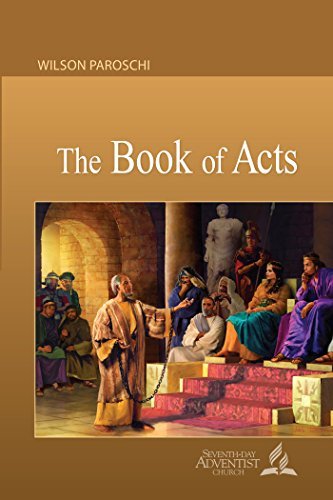The Book of Acts Bible Book Summary
Bible Book Shelf 3Q 2018
TL;DR
The Book of Acts narrates the early Christian church's growth, showcasing the transformative power of the Holy Spirit through the lives of the apostles, particularly Peter and Paul, amidst human struggles and conflicts.
What is The Book of Acts Bible about
In 'The Book of Acts Bible', Wilson Paroschi explores the foundational years of the Christian church, emphasizing its rapid expansion and the crucial role of the Holy Spirit. The narrative begins with the apostles and early believers who, despite their flaws and challenges, spread the message of Christ across diverse cultures. Paroschi challenges the idealized perception of early Christianity, presenting a more nuanced view of believers entangled in human conflicts and misconceptions. His analysis reveals how God worked through imperfect individuals to accomplish extraordinary feats, asserting that the legacy of Acts serves as a testament to divine empowerment and guidance in the face of adversity.
The Book of Acts Bible 5 Key Takeaways
Empowerment of the Holy Spirit
Acts highlights the pivotal role of the Holy Spirit in empowering the apostles, enabling them to perform miracles and boldly proclaim the gospel.
Growth of the Early Church
The rapid expansion of the early church illustrates how the message of Jesus spread, transforming lives and communities across the Roman Empire.
Conversion of Paul
Saul's dramatic conversion to Paul exemplifies the theme of redemption and the transformative power of faith, marking a significant turning point in evangelizing the Gentiles.
Spread of the Gospel to the Gentiles
Acts documents the inclusive mission of the church, emphasizing the importance of reaching diverse populations beyond the Jewish community.
Persecution of Early Christians
The book details the challenges and persecutions faced by early believers, highlighting their resilience and commitment to spreading the gospel despite adversity.
The Book of Acts Bible Videos
Book of Acts Summary: A Complete Animated Overview (Part 1)
Top The Book of Acts Bible Quotes
- God can work powerfully when men and women, despite their limitations, humble their hearts in prayer.
- The achievements of the early church are a testimony of divine grace amid human flaws.
Who should read The Book of Acts Bible?
This book is ideal for theologians, students of the Bible, and anyone interested in the historical context of Christianity. Readers will gain a deeper understanding of the early church's dynamics, the significance of the Holy Spirit, and the challenges faced by believers, which are relevant to contemporary faith journeys.
The Book of Acts Bible Best Reviews
- Paroschi's insights into the Book of Acts reveal how God's Spirit navigated the early church through its complexities, offering a realistic portrayal of faith in action. - The Christian Review
- This work serves as an essential guide to understanding the dynamics of the early church and the foundational role of the Holy Spirit in its growth. - Faith & Culture Journal
People also liked these summaries
The Book of Acts Bible FAQs
What is the main message in the book of Acts?
The Book of Acts primarily conveys the introduction and empowering presence of the Holy Spirit in believers' lives, illustrating how it enabled the apostles to spread the gospel.
Why is the book of Acts considered important?
Acts is crucial as it details the early church's formation, the evangelism of Paul, and provides insights into how to disciple believers and establish church communities.
